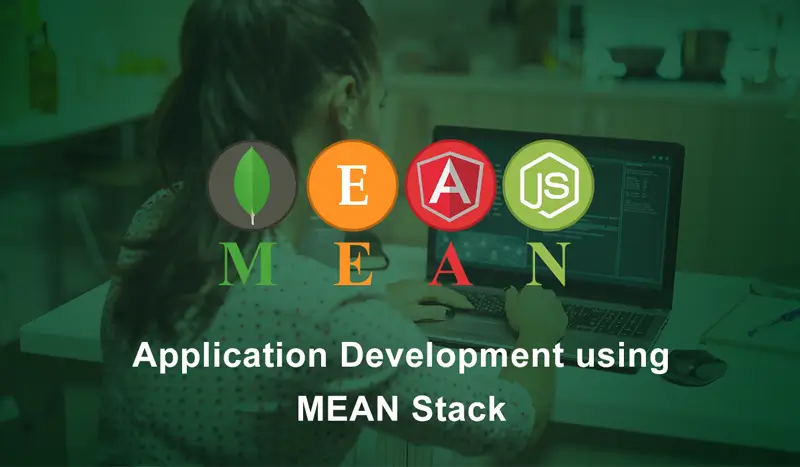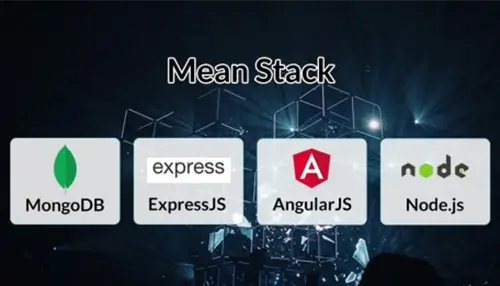MEAN Stack is an acronym for MongoDB, Express, Angular, and Node JS but moreover, it is a JavaScript-based solution. MongoDB is an open-source database that uses a document-oriented data model. That means the architecture of the MEAN Stack application comprises a collection of various documents as opposed to tables and rows. It is a scalable architecture and it holds the potential of handling large data volumes.
App development companies always prefer to use an open-source stack for developing their applications because of its swiftness and organized method of operation. JavaScript language is one of the best advantages of the MEAN stack and this factor makes web and app development easier as well as efficient.
MEAN Stack application development has gained massive popularity because of the versatility of this stack in fast and robust application development of both mobile and web. The JavaScript usage in writing the entire applications through MEAN Stack, facilitates unique execution of both server-side and client-side applications. The combination of top-notch technologies provides remarkable results in the field of mobile application development.
MEAN Stack App Development Architecture
AngularJS is a client-side language that uses JavaScript. As a result, anytime a user submits a request, AngularJS is the first to process it. The application then moves on to the second phase, which is Node.js also termed as a server-side language. After that, the request is sent to ExpressJS, which is also known as phase 3. MongoDB then obtains all of the data before providing the response to ExpressJS once the request is made in phase 3. The data received by ExpressJS is given to NodeJS, which subsequently returns the response to AngularJS.
Advantages of MEAN Stack Application Development
1. Greater Flexibility
The flexibility of MEAN stack development technology is one of its most prominent factors. After an app has been built, the developer can test it using the cloud platform. MEAN stack’s versatility is illustrated in the application’s development, testing, and introduction with very few of its problems. Furthermore, even after a field has been added to the form, an individual has the liberty to add additional information to it as well. For example, MongoDB provides complete support as well as automatic replication.
2. Isomorphic Coding made simple with MEAN Stack
The MEAN stack makes it easier to move code from one framework to the next. Many businesses are currently researching the most cutting-edge technologies that can be used to improve the creation of robust applications.
3. Cloud Accessibility
In its development, the MEAN stack makes use of public repositories and libraries. When some of these technologies are deployed together, this helps to minimize the overall development cost. MongoDB lowers the cost of disk space, which is made feasible by the cloud functionality feature of the MEAN Stack application.
4. Cost-Effective
The expense of developing an app is one of the most significant barriers. In comparison to the LAMP stack, the overall number of developers required for the MEAN stack is lesser. For example, in the LAMP stack, developers must be proficient in other technologies such as MySQL, PHP, and JavaScript. As a result, the MEAN stack’s cost-effectiveness makes it the best tool for enterprise app development.
5. Single Language App Development
In all of the MEAN stack’s codes, JavaScript is the only language used. JavaScript is also utilized in both server-side and client-side development. Another advantage of utilizing a common language in MEAN stack app development is that developers can understand and implement the language from scratch.
6. High Speed and Reusability
High speed is one of the primary factors for any app user. The lack of blocking architecture in Node.js improves reusability while also increasing the app speed. Furthermore, the use of AngularJS, which uses an open-source JavaScript framework, improves maintenance, testing, and reusability.
Conclusion
MEAN Stack has a unique architecture that is both scalable and capable of handling enormous amounts of data. Because of its unique way of operation, it is a good fit for most app development organizations. The usage of JavaScript as the main language has the added benefit of not requiring compilation to run like other languages in MEAN Stack applications. JavaScript allows programmers to create short scripts more quickly, which speeds up the whole development process.
Get in touch with us today to avail our expertise on enterprise mobile applications development using the MEAN stack.







